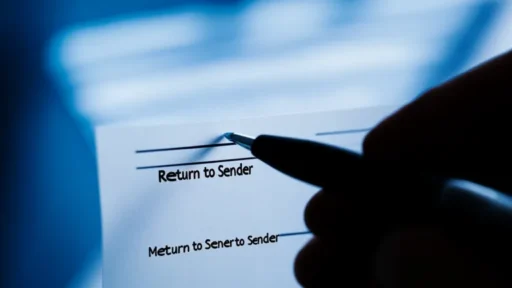Navigating legal matters can be daunting, especially when it comes to making decisions on behalf of someone else. A general power of attorney (GPOA) offers a solution by granting one individual the authority to act on another’s behalf in a broad range of matters. This legal document ensures that important decisions related to finances, property, and personal affairs are handled smoothly when someone is unable to do so themselves.
Understanding the scope and implications of a general power of attorney is crucial for both the grantor and the agent. It not only provides peace of mind but also safeguards the interests of all parties involved. Whether you’re considering appointing someone or being appointed, knowing the ins and outs of a GPOA can empower you to make informed decisions.
Understanding General Power Of Attorney
A General Power of Attorney (GPOA) grants a person the authority to act on another’s behalf in various legal, financial, and business matters. The grantor, who assigns this authority, enables the agent, also known as the attorney-in-fact, to perform actions as if they were the grantor themselves.
Scope Of Authority
The GPOA provides broad authorization for the agent, covering multiple aspects of the grantor’s life. These aspects can include managing bank accounts, signing checks, handling real estate transactions, and making business decisions. To avoid misuse, it’s crucial to trust the selected agent fully.
Legal Requirements
Creating a valid GPOA necessitates compliance with specific state laws. Generally, the grantor must be of sound mind and sign the document, often in the presence of a notary public. Some states also require witnesses to be present during the signing.
Duration And Revocation
The GPOA remains effective until the grantor revokes it, becomes incapacitated, or passes away unless otherwise stated. The grantor can revoke the GPOA at any time by providing written notice to the agent and relevant third parties.
Selecting An Agent
Choosing an agent is a critical decision. The agent should be someone trustworthy, responsible, and capable of managing the responsibilities outlined in the GPOA. Since the agent’s authority is extensive, selecting a person with the grantor’s best interests at heart is vital.
Potential Risks
While a GPOA offers convenience, there are inherent risks. The agent could misuse the power for personal gain, leading to financial loss or legal complications for the grantor. Therefore, keeping good records and periodically reviewing the agent’s actions is advisable.
Practical Uses
A GPOA can be practical in various situations. For instance, an individual living abroad might use a GPOA to manage their affairs back home. Similarly, someone with a busy schedule might delegate financial tasks to a trusted agent.
Types Of General Power Of Attorney
A General Power of Attorney (GPOA) comes in different types, each tailored for specific needs and circumstances. They provide flexibility in managing the grantor’s affairs comprehensively or under certain conditions.
Limited Power of Attorney
A Limited Power of Attorney grants the agent authority over specific tasks or decisions. It restricts the agent’s power to predefined activities, such as handling a real estate transaction, managing particular financial accounts, or representing the grantor in a single legal matter. The limited scope ensures the agent’s authority remains narrowly focused and temporary, often defined by an end date or the completion of the task.
Durable Power of Attorney
A Durable Power of Attorney remains effective even if the grantor becomes incapacitated. This type of GPOA allows the agent to continue managing affairs, ensuring continuity during the grantor’s ill health or inability to make decisions. Essential for long-term planning, it often includes managing medical decisions, ongoing financial matters, and other personal affairs, providing broader and more enduring powers than a standard GPOA.
How To Obtain A General Power Of Attorney
Acquiring a General Power of Attorney (GPOA) involves several legal steps. Ensuring compliance with all requirements is crucial.
Legal Requirements
To obtain a General Power of Attorney, the grantor must be of sound mind, meaning they understand the implications of the document. The GPOA must be signed willingly by the grantor and witnessed by a notary public.
- Sound Mind: The grantor understands the powers granted.
- Willing Signature: The grantor signs the document voluntarily.
- Notarization: A notary public witnesses the signing.
These requirements ensure the GPOA’s legal validity and help prevent possible disputes.
- Draft the Document: Use a lawyer or an authorized template to draft the GPOA, detailing the scope of the agent’s powers.
- Choose an Agent: Select a trustworthy individual to act on the grantor’s behalf. Their responsibilities can include managing finances, handling business transactions, and other specified duties.
- Review the GPOA: Carefully check all terms and provisions to ensure they align with the grantor’s intentions.
- Sign in Presence of Notary Public: Execute the document by signing it before a notary public to lend it legal weight.
- Distribute Copies: Provide copies to relevant parties, including the agent, financial institutions, and any other necessary recipients.
These steps streamline the process, ensuring the GPOA is legally sound and clearly understood by all involved.
Pros And Cons Of General Power Of Attorney
A General Power of Attorney (GPOA) provides both advantages and disadvantages. Understanding these can help individuals make informed decisions about whether to grant or accept this authority.
Benefits
Comprehensive Authority: A GPOA grants the agent extensive powers to handle various aspects of the grantor’s personal, financial, and business matters. This can ensure that decisions are made promptly and efficiently without the grantor’s direct involvement.
Convenience: It offers significant convenience, especially for those with busy schedules or those living abroad. For example, an agent can manage banking, real estate, or investments on behalf of the grantor.
Temporary Solution: If the grantor experiences a temporary illness or incapacity, the GPOA allows the agent to manage affairs seamlessly without disruption.
Peace of Mind: Knowing a trusted individual can make decisions provides peace of mind, particularly in emergencies or when the grantor cannot act independently.
Drawbacks
Potential for Abuse: The wide-ranging powers granted to the agent pose a risk of misuse. If the agent exploits their position for personal gain, it can harm the grantor’s interests.
Revocation Challenges: Revoking a GPOA can be complex if the grantor becomes incapacitated. Legal steps may be required to terminate the agent’s authority, adding stress and complications.
Risk of Mismanagement: Even well-meaning agents may make poor decisions due to a lack of expertise or understanding, leading to financial or legal problems for the grantor.
Limited Oversight: A GPOA typically lacks built-in mechanisms for oversight or checks on the agent’s actions, increasing the potential for errors or unethical behavior without immediate detection.
Understanding the pros and cons helps in making an informed decision about granting or accepting a General Power of Attorney.
Important Considerations
Selecting an agent and understanding legal implications are crucial when establishing a general power of attorney (GPOA).
Selecting an Agent
Choosing the right agent is paramount. The agent should be trustworthy, responsible, and capable of handling the grantor’s affairs. They must understand their duties and the ethical considerations involved. It’s essential to discuss expectations and ensure the agent is willing to serve. Documenting the agent’s authority clearly helps prevent misunderstandings and misuse. Background checks and references can further ensure the agent’s reliability. Selecting a family member may seem advantageous but can lead to conflicts of interest.
Legal Implications
Understanding the legal implications of a GPOA is critical. The document grants extensive authority, enabling the agent to make significant decisions. Incorrect or unethical actions can lead to legal disputes. It’s necessary to draft the GPOA in compliance with state laws to ensure validity. Including specific instructions and limitations within the GPOA can safeguard the grantor’s interests. Consulting with a legal professional provides clarity on the scope of the authority and helps mitigate risks. Misunderstanding these implications might result in unintended consequences, making it essential to approach the GPOA with due diligence.
Discover the Power of BlueNotary:
Integrate your Business, Title Company, or Law Firm to Satisfy your Customers and Decrease Turnaround
Get a document Notarized/Sign-up
Join the Free Notary Training Facebook Group
Conclusion
A general power of attorney is a powerful legal tool that can simplify the management of one’s affairs. Granting broad authority offers flexibility and peace of mind, but it also carries significant risks if not carefully managed.
Selecting a trustworthy agent and understanding the legal requirements are crucial steps in ensuring the GPOA serves its intended purpose. Consulting a legal professional can help mitigate potential issues and ensure compliance with state laws.
Ultimately, a well-drafted GPOA can protect the interests of all parties involved, making it a valuable consideration for those seeking to delegate decision-making authority.
Frequently Asked Questions
What is a General Power of Attorney (GPOA)?
A General Power of Attorney (GPOA) is a legal document that grants one person (the agent) the authority to make decisions on behalf of another person (the grantor) in various legal matters.
How long does a GPOA remain effective?
A GPOA remains effective until the grantor revokes it or if the grantor becomes incapacitated or passes away.
What are the legal requirements for creating a GPOA?
To create a valid GPOA, the grantor must be of sound mind, sign the document willingly, and have it notarized.
What types of GPOA are there?
There are different types, including Limited Power of Attorney, which restricts authority to specific tasks, and Durable Power of Attorney, which remains effective even if the grantor becomes incapacitated.
Can a GPOA be revoked?
Yes, a GPOA can be revoked by the grantor at any time, as long as they are of sound mind.
What are the risks of granting a GPOA?
Risks include potential abuse of power by the agent, difficulty in revoking the GPOA if the grantor becomes incapacitated, and mismanagement.
What are the benefits of a GPOA?
Benefits include comprehensive authority for the agent, convenience for the grantor, a temporary solution during illness, and peace of mind knowing a trusted individual can make decisions.
How should one choose an agent for a GPOA?
Select a trustworthy and responsible individual who is aware of their responsibilities and capable of managing the grantor’s affairs effectively.
Is it necessary to consult a lawyer when drafting a GPOA?
Yes, consulting a lawyer is recommended to ensure the GPOA complies with state laws and that all legal steps are followed to prevent disputes.







